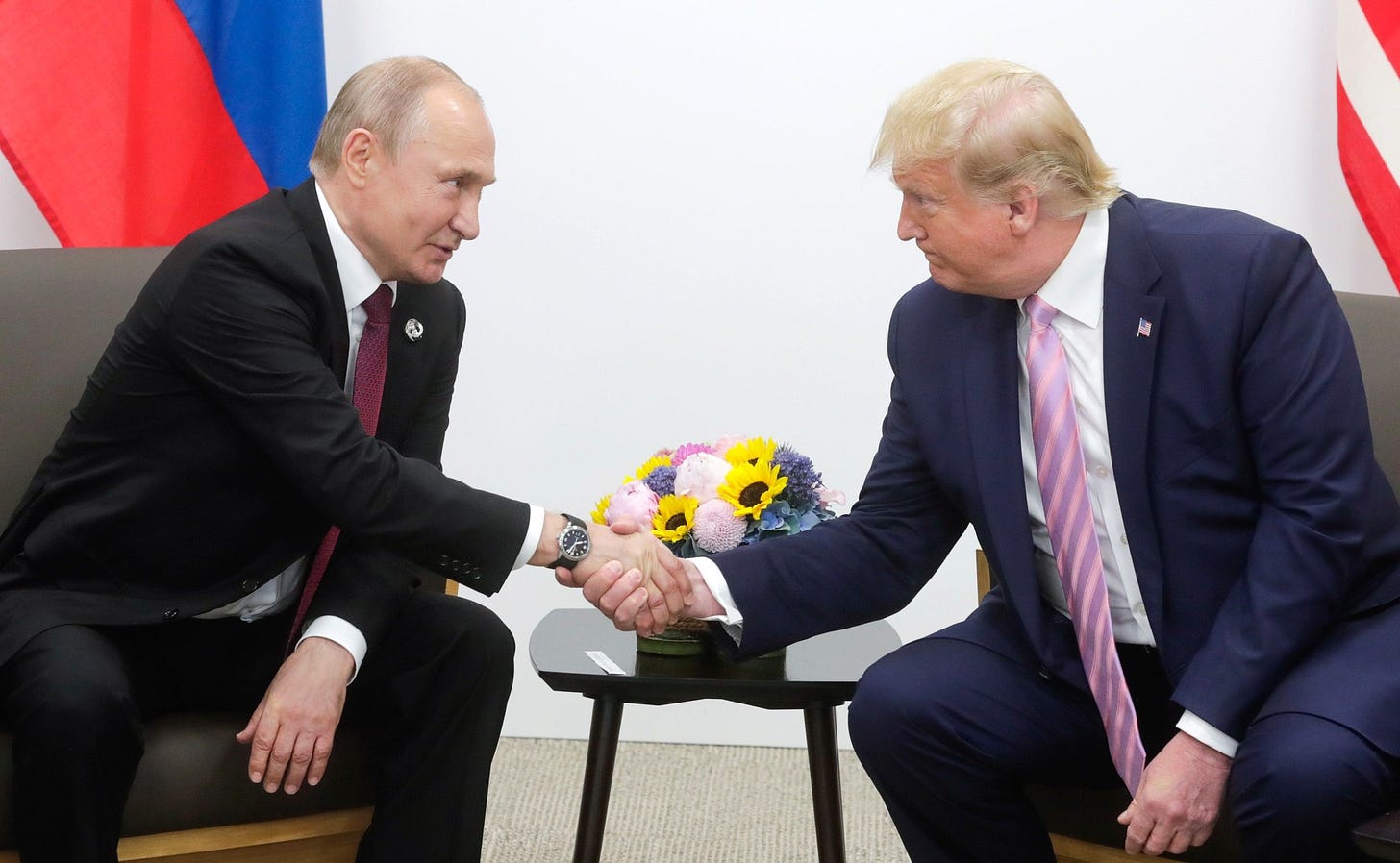Trump’s Ukraine Peace Plan Would Hand Putin Ukrainian Territory
The Trump administration’s latest “peace plan” for Ukraine is less about ending the war and more about legitimizing Russia’s territorial conquests. Leaked details from multiple outlets suggest the proposal, which will be on the table when Donald Trump meets Vladimir Putin in Alaska on August 15, would formalize Russia’s co…
Keep reading with a 7-day free trial
Subscribe to The Crustian Daily to keep reading this post and get 7 days of free access to the full post archives.



